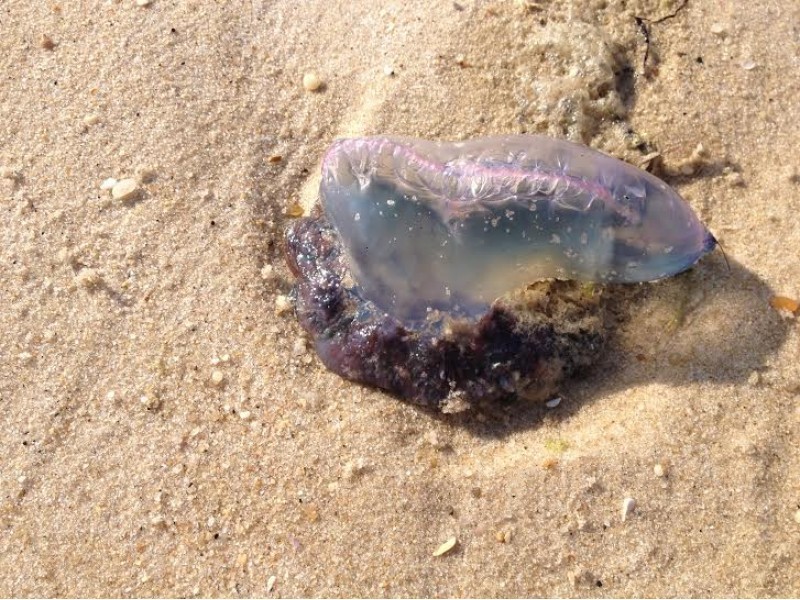-
Tips for becoming a good boxer - November 6, 2020
-
7 expert tips for making your hens night a memorable one - November 6, 2020
-
5 reasons to host your Christmas party on a cruise boat - November 6, 2020
-
What to do when you’re charged with a crime - November 6, 2020
-
Should you get one or multiple dogs? Here’s all you need to know - November 3, 2020
-
A Guide: How to Build Your Very Own Magic Mirror - February 14, 2019
-
Our Top Inspirational Baseball Stars - November 24, 2018
-
Five Tech Tools That Will Help You Turn Your Blog into a Business - November 24, 2018
-
How to Indulge on Vacation without Expanding Your Waist - November 9, 2018
-
5 Strategies for Businesses to Appeal to Today’s Increasingly Mobile-Crazed Customers - November 9, 2018
Venomous Man O’ War Spotted on Fire Island Shores, 2 Children Injured
As News 12 previously reported, a 7-year-old boy was stung by a man-of-war in Kismet on Fire Island Tuesday.
Advertisement
Stings from man-of-wars can cause abdominal pain, changes in pulse, chest pain, collapse, headache, muscle pain and spasms, numbness and weakness, pain in the arms or legs, a raised red spot on the skin, runny nose and watery eyes, difficulty swallowing and sweating.
“Beach goers should be vigilant”, said Fire Island National Seashore Chief Law Enforcement Ranger John Stewart in a statement.
On Tuesday in Davis Park on Fire Island, multiple people reported getting stung by a man o’ war.
The Long Island Coastal Conservation Research Alliance (LICCRA), a nonprofit environmental group, confirmed some of those sighting and said another was found at Tiana Beach in Hampton Bays.
Authorities say a 4-year-old boy was stung just after noon. A third unidentified victim was also stung in Davis Park, but did not ask for medical assistance.
Officials say the jellyfish-like creatures are typically found in warm water and could have ridden currents up from Florida, where they’re common. The last reports of Portuguese Man-O-War washing ashore on Long Island was two years ago in the Hamptons. This summer, the bright blue creatures with their long tentacles have so many times appeared in the Jersey Shore beaches, said CBS2’s Dave Carlin.
With droves of beachgoers expected to venture out to the ocean on the upcoming hot and sunny weekend, Suffolk County’s Regional EMS Council (REMSCO) is advising first responders to be on the alert for patients who may be stung by highly venomous Portuguese man of war jellyfish.
Advertisement
Beach goers should avoid contacting the creatures and immediately leave the water if one is spotted.




























